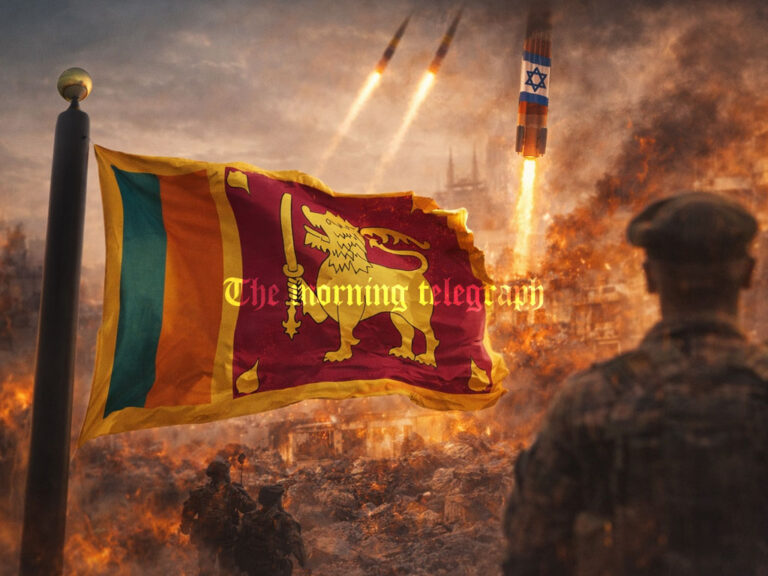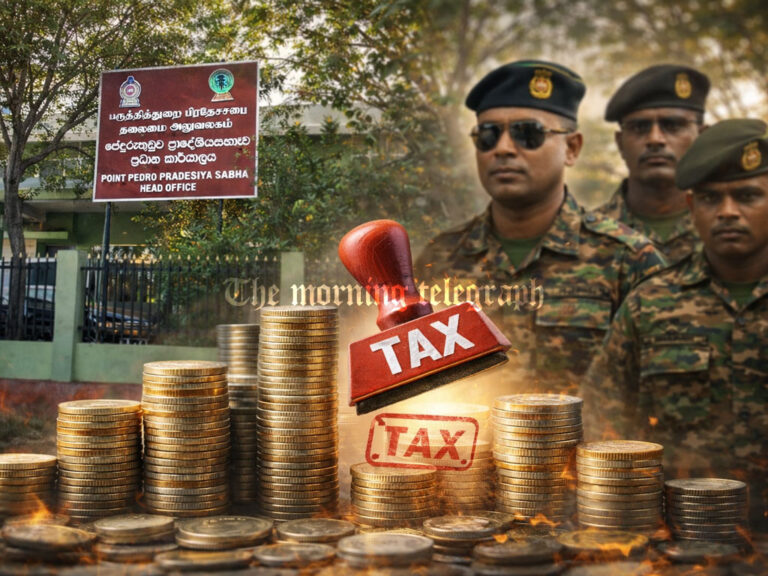
Indian Women Lead Night Protests After Doctor's Rape and Murder
Tens of thousands of women in West Bengal have taken to the streets in a powerful display of solidarity and anger following the rape and murder of a trainee doctor at a Kolkata hospital. The Reclaim the Night march, which unfolded on Wednesday night, was the culmination of nearly a week of intense protests sparked by the brutal killing of the 31-year-old doctor at RG Kar Medical College.
The tragic incident occurred after the doctor, who had worked a grueling 36-hour shift, fell asleep in a seminar room due to the absence of a designated rest area. Her body, found the next morning, was discovered half-naked and bearing severe injuries. A hospital volunteer has been arrested in connection with the crime.
The night march saw women from all walks of life marching across Kolkata and other parts of West Bengal, responding to calls on social media. Despite the overall peaceful nature of the protests, clashes erupted when a group of unidentified men stormed the RG Kar Hospital, leading to ransacking of the emergency department and police firing tear gas to disperse the crowd. Some police vehicles were damaged during the unrest.
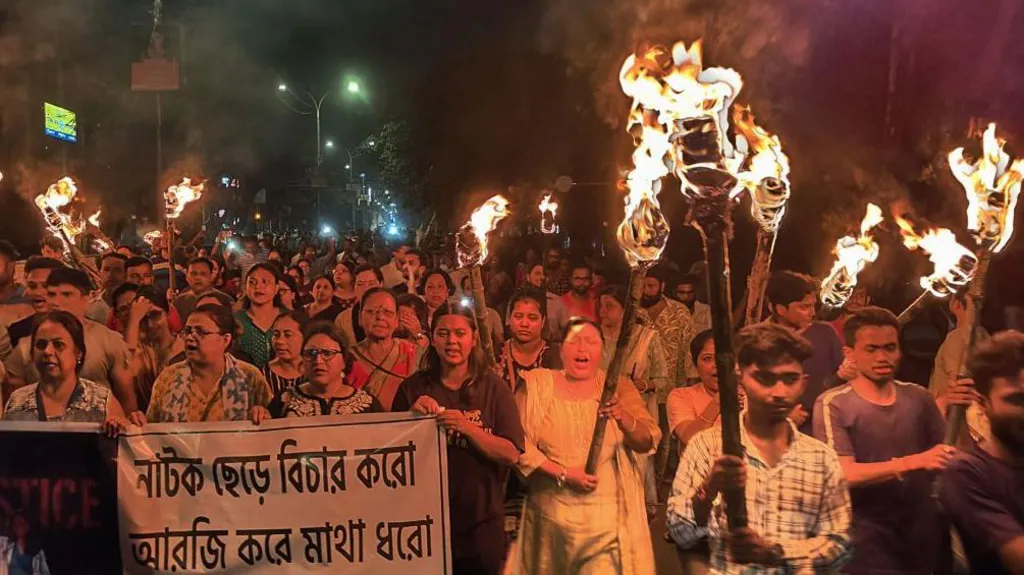
In Kolkata, protesters carried placards and illuminated their path with mobile phones, candles, and torches. Many waved India’s flags and were joined by men of all ages. The atmosphere was charged with chants of “we want justice” and the sound of conch shells, which are considered auspicious. As India marked 77 years of Independence at midnight, the protesters spontaneously sang the national anthem amidst the rain, which they braved while holding umbrellas.
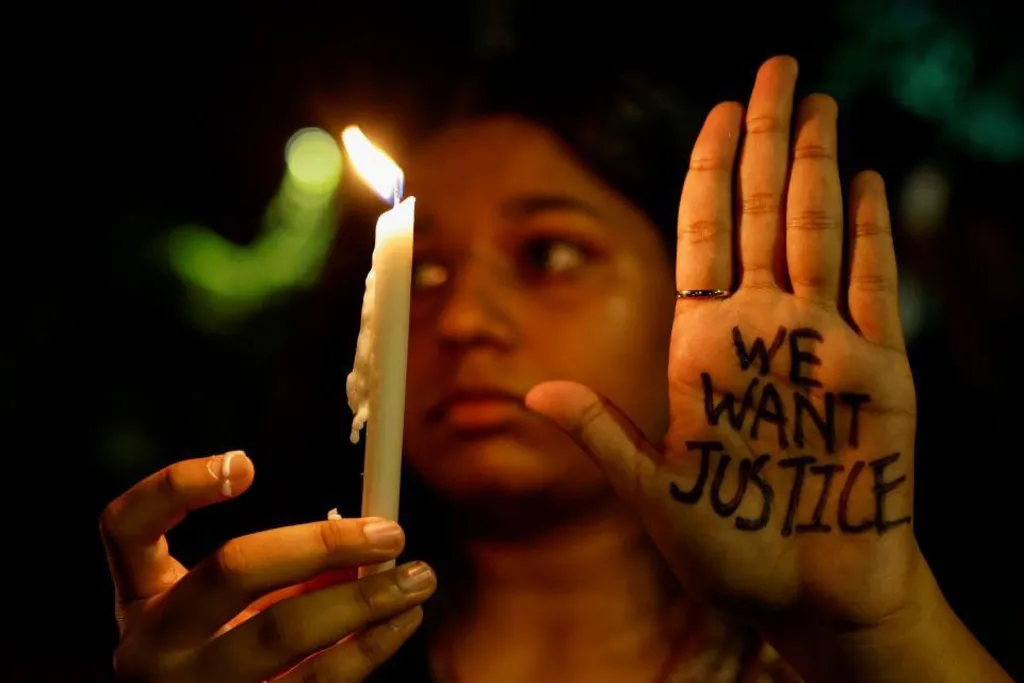
The sight was unprecedented in Kolkata, described by reporters as a significant display of collective frustration. Participants included a mother with her young daughter, who hoped the protest would teach her child about standing up against injustice. Another protester expressed disillusionment with the status of women’s rights, questioning when true equality would be achieved.
Sanchari Mukherjee, editor of a digital magazine, noted the diverse participation in the march, with individuals from various socio-economic backgrounds joining in despite the rain. She described the march as a poignant moment of solidarity, with the city’s residents showing their support from their homes.

The protests have been driven by dissatisfaction with the local authorities’ handling of the case. The hospital volunteer’s arrest followed accusations of rape and murder, and the case has since been transferred to the federal Central Bureau of Investigation amid allegations of cover-up and negligence.
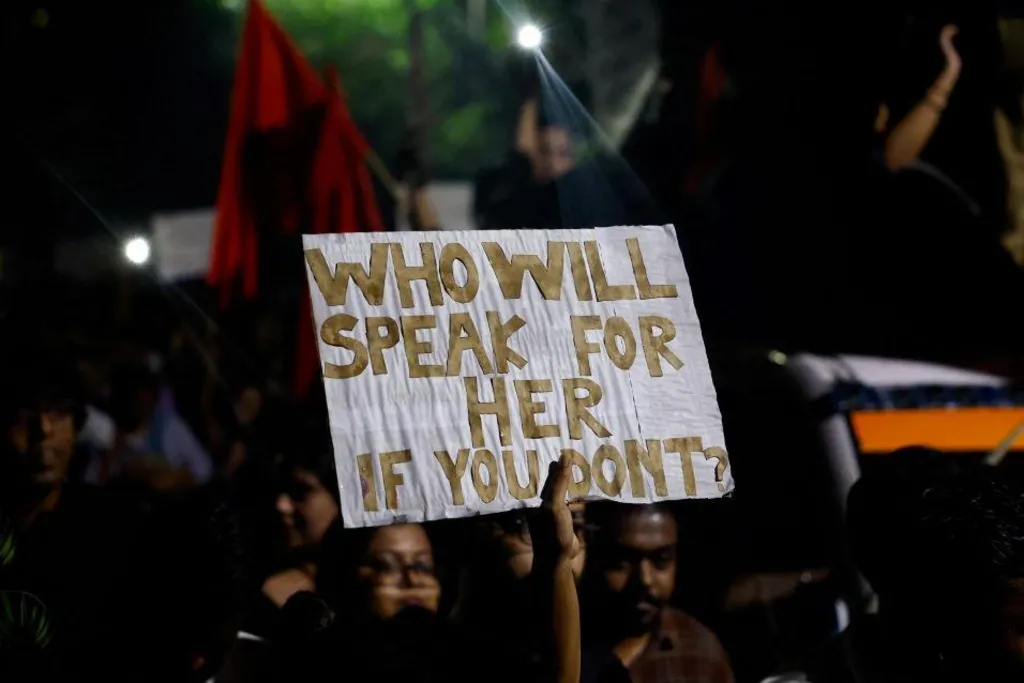
Organizers of the Reclaim the Night march emphasized inclusivity, welcoming women and individuals from marginalized gender and sexual identities while requesting that political party flags be left at home. The Kolkata march, echoing similar movements worldwide, stands as the largest of its kind in India to date.
Chaitali Sen, one of the protesters, expressed hope that the unprecedented scale of the Kolkata march would prompt authorities to take notice and address the issues of violence against women more effectively.
Source :- BBC
Images Courtesy :- BBC , Reuters, AFP, Jeet Sengupta

